| Listing 1 - 10 of 145 | << page >> |
Sort by
|
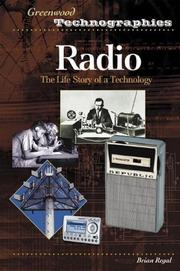
ISBN: 0313331677 Year: 2005 Publisher: Westport, Conn. Greenwood Press
Abstract | Keywords | Export | Availability | Bookmark
 Loading...
Loading...Choose an application
- Reference Manager
- EndNote
- RefWorks (Direct export to RefWorks)
Mass communications --- Radio --- History.
Book
ISBN: 3030995372 3030995380 Year: 2022 Publisher: Cham, Switzerland : Palgrave Macmillan,
Abstract | Keywords | Export | Availability | Bookmark
 Loading...
Loading...Choose an application
- Reference Manager
- EndNote
- RefWorks (Direct export to RefWorks)
This book examines the legends of who 'really' discovered America. It argues that histories of America's origins were always based less on empirical evidence and more on social, political, and cultural wish fulfillment. Influenced by a complex interplay of Nativist hatred of immigrants and Aboriginal people, as well as distrust of academic scholarship, these legends ebbed and flowed with changing conditions in wider American society. The book focuses on the actions of a collection of quirky, obsessed amateur investigators who spent their lives trying to prove their various theories by promoting Welsh princes, Vikings, Chinese admirals, Neo-lithic Europeans, African explorers, and others who they say arrived centuries before Columbus. These myths acted as mitigating agencies for those who embraced them. Along with recent scholarship, this book makes extensive use of archival materials -- some of which have never been employed before. It covers the period from the sixteenth century to the present. It brings together separate historiographic ideas to create a unified history rather than focusing on one particular legend as most books on the subject do. It shows how questions of who discovered America helped create the field of historical scholarship in this country. This book does not attempt to prove who discovered America, rather it tells the story of those who think they did. Brian Regal is Associate Professor of history at Kean University, USA.
America --- Discovery and exploration --- Historiography. --- History. --- Discovery and exploration.
Digital
ISBN: 9783030995386 9783030995379 9783030995393 9783030995409 Year: 2022 Publisher: Cham Springer International Publishing, Imprint: Palgrave Macmillan
Abstract | Keywords | Export | Availability | Bookmark
 Loading...
Loading...Choose an application
- Reference Manager
- EndNote
- RefWorks (Direct export to RefWorks)
This book examines the legends of who 'really' discovered America. It argues that histories of America's origins were always based less on empirical evidence and more on social, political, and cultural wish fulfillment. Influenced by a complex interplay of Nativist hatred of immigrants and Aboriginal people, as well as distrust of academic scholarship, these legends ebbed and flowed with changing conditions in wider American society. The book focuses on the actions of a collection of quirky, obsessed amateur investigators who spent their lives trying to prove their various theories by promoting Welsh princes, Vikings, Chinese admirals, Neo-lithic Europeans, African explorers, and others who they say arrived centuries before Columbus. These myths acted as mitigating agencies for those who embraced them. Along with recent scholarship, this book makes extensive use of archival materials-some of which have never been employed before. It covers the period from the sixteenth century to the present. It brings together separate historiographic ideas to create a unified history rather than focusing on one particular legend as most books on the subject do. It shows how questions of who discovered America helped create the field of historical scholarship in this country. This book does not attempt to prove who discovered America, rather it tells the story of those who think they did. Brian Regal is Associate Professor of history at Kean University, USA.
History as a science --- History of civilization --- History --- History of North America --- History of Latin America --- historiografie --- cultuurgeschiedenis --- geschiedenis --- America
Year: 1966 Publisher: Antwerpen,
Abstract | Keywords | Export | Availability | Bookmark
 Loading...
Loading...Choose an application
- Reference Manager
- EndNote
- RefWorks (Direct export to RefWorks)
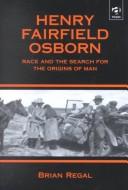
ISBN: 0754605876 Year: 2002 Publisher: Aldershot Ashgate
Abstract | Keywords | Export | Availability | Bookmark
 Loading...
Loading...Choose an application
- Reference Manager
- EndNote
- RefWorks (Direct export to RefWorks)
Eugenics --- Human beings --- Human evolution --- Human evolution --- Paleontologists --- Physical anthropology --- Racism in anthropology --- Religious fundamentalism --- History --- Origin --- Philosophy --- Religious aspects --- Christianity --- History --- History --- History --- Osborn, Henry Fairfield, --- Scopes, John Thomas --- Trials, litigation, etc.
Book
Abstract | Keywords | Export | Availability | Bookmark
 Loading...
Loading...Choose an application
- Reference Manager
- EndNote
- RefWorks (Direct export to RefWorks)
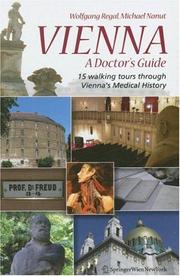
ISBN: 1281138177 9786611138172 3211489525 3211489495 Year: 2007 Publisher: Wien ; New York : Springer,
Abstract | Keywords | Export | Availability | Bookmark
 Loading...
Loading...Choose an application
- Reference Manager
- EndNote
- RefWorks (Direct export to RefWorks)
Vienna – medically. One can look at Vienna from this perspective, too. There are traces to be found almost everywhere in the city, as not all that long ago Vienna was, from the viewpoint of medical history, regarded as the "Mecca of Medicine". This book describes a total of 15 walking tours through old medical Vienna. Naturally, these tours are concentrated on the inner city and the ninth district; the former was once the heart of mediaeval Vienna while the Allgemeines Krankenhaus (General Hospital) was established in Alsergrund, as the ninth district is known. However, a number of tours lead visitors outside the city and reveal Vienna from a more hidden perspective, as they lie somewhat outside the beaten tourist path and so have their own special attraction. Finding one’s way around this book – and hopefully also around Vienna – is easy. Having decided on your tour you can orient yourself according to the respective overview map. But, as man doth not live by medicine alone, there are also a number of notes on art history and a list of good cafés and restaurants. This allows the experiences to be digested in an appropriately Viennese way. A separate museum tour is devoted to museums without fixed opening hours, which contain special collections that exist only in Vienna.
Medicine --- History. --- Vienna (Austria) --- Clinical sciences --- Medical profession --- Human biology --- Life sciences --- Medical sciences --- Pathology --- Physicians --- Wien (Austria) --- Vi︠e︡denʹ (Austria) --- Vedenʹ (Austria) --- Vena (Austria) --- Wiedëń (Austria) --- Bécs (Austria) --- Vindobona (Austria) --- Videnʹ (Austria) --- Vienne (Austria) --- Viena (Austria) --- Wienn (Austria) --- Dunaj (Austria) --- Wean (Austria) --- Wenen (Austria) --- Wina (Austria) --- Wene (Austria) --- Uigenna (Austria) --- فيينا (Austria) --- Fīyinnā (Austria) --- Vyana (Austria) --- Вена (Austria) --- Горад Вена (Austria) --- Виена (Austria) --- Beč (Austria) --- Fienna (Austria) --- Viin (Austria) --- Βιέννη (Austria) --- Вена ош (Austria) --- Vena osh (Austria) --- Vieno (Austria) --- Viene (Austria) --- Vín (Austria) --- Veen (Austria) --- 빈 (Austria) --- Венæ (Austria) --- Venæ (Austria) --- וינה (Austria) --- Ṿinah (Austria) --- Vienna (Reichsgau) --- Medicine. --- Pharmacy. --- Arts. --- Architecture. --- Popular Science in Medicine and Health. --- History of Medicine. --- History, general. --- Cities, Countries, Regions. --- Architecture, Western (Western countries) --- Building design --- Buildings --- Construction --- Western architecture (Western countries) --- Art --- Building --- Annals --- Auxiliary sciences of history --- Arts, Fine --- Arts, Occidental --- Arts, Western --- Fine arts --- Humanities --- Chemistry --- Drugs --- Materia medica --- Pharmacology --- Design and construction --- Health Workforce --- Medicine . --- Health. --- Medicine—History. --- Personal health --- Wellness --- Physiology --- Diseases --- Holistic medicine --- Hygiene --- Well-being --- Arts, Primitive --- Architecture, Primitive
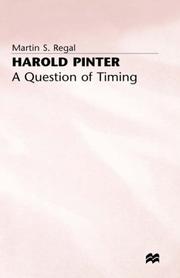
ISBN: 0333607619 0312124767 Year: 1995 Publisher: New York, NY : MacMillan,
Abstract | Keywords | Export | Availability | Bookmark
 Loading...
Loading...Choose an application
- Reference Manager
- EndNote
- RefWorks (Direct export to RefWorks)
820 "19" PINTER, HAROLD --- Engelse literatuur--20e eeuw. Periode 1900-1999--PINTER, HAROLD --- Pinter, Harold --- -Criticism and interpretation --- 820 "19" PINTER, HAROLD Engelse literatuur--20e eeuw. Periode 1900-1999--PINTER, HAROLD --- Pinter, Harold, --- Bintar, Hārūld, --- Пинтер, Гарольд, --- פינטר, הרולד, --- Pinter, Garolʹd, --- Criticism and interpretation. --- PINTER (HAROLD), 1930-2008 --- CRITIQUE ET INTERPRETATION
Book
ISBN: 9780415222242 Year: 2014 Publisher: London ; New York Routledge
Abstract | Keywords | Export | Availability | Bookmark
 Loading...
Loading...Choose an application
- Reference Manager
- EndNote
- RefWorks (Direct export to RefWorks)
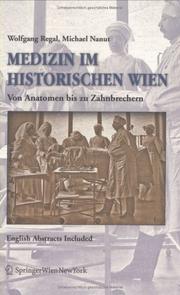
Abstract | Keywords | Export | Availability | Bookmark
 Loading...
Loading...Choose an application
- Reference Manager
- EndNote
- RefWorks (Direct export to RefWorks)
| Listing 1 - 10 of 145 | << page >> |
Sort by
|

 Search
Search Feedback
Feedback About UniCat
About UniCat  Help
Help News
News